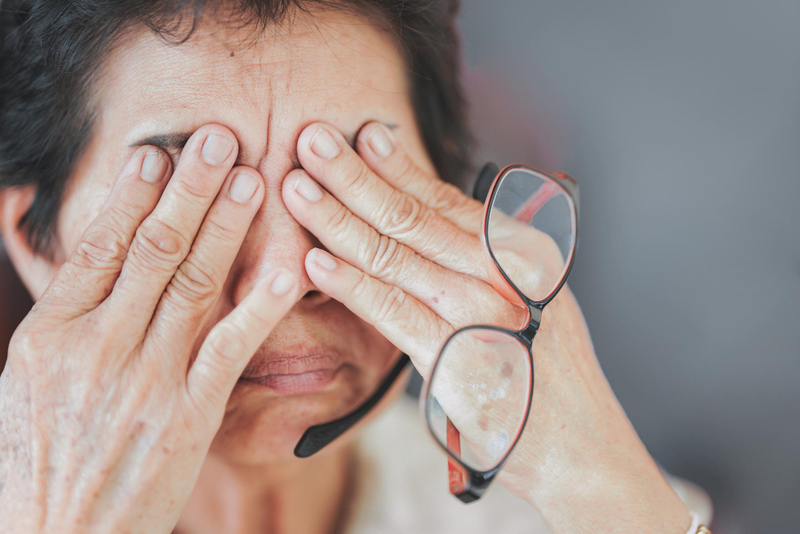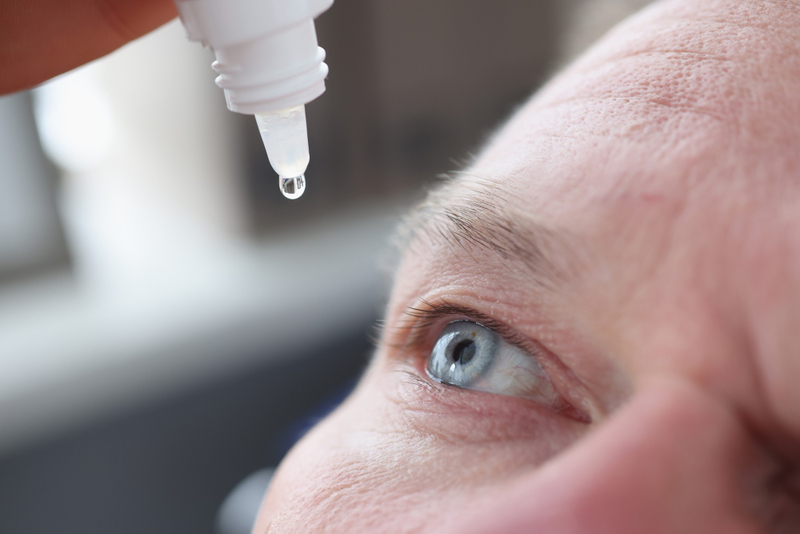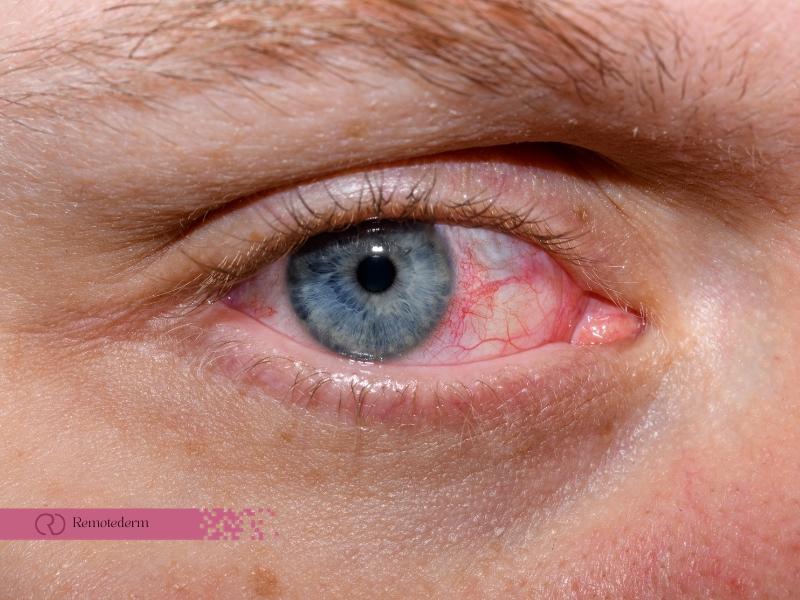Ocular rosacea is a nuanced and often misdiagnosed condition that transcends mere facial redness and affects the eyes with a suite of uncomfortable symptoms. In this guide, we delved into the essential understanding of what ocular rosacea is, the sundry symptoms it manifests, and the effective treatments that can alleviate discomfort and safeguard eye health. This comprehensive guide provides vital information on diagnosis and management of ocular rosacea, revealing symptoms and treatment strategies against its most feared complication: vision loss.
What is Ocular Rosacea?
Ocular rosacea is a condition that often accompanies the skin disorder known as rosacea, characterized by facial redness and inflammation. It specifically affects the eye area and can lead to considerable discomfort and potential vision complications if not identified and managed promptly. The manifestation of ocular rosacea symptoms can vary from mild to severe, and recognizing these signs is pivotal for securing the necessary treatment and mitigating the risks associated with delayed care.
Understanding Ocular Rosacea Symptoms
The symptoms of ocular rosacea encompass a range of eye-related discomforts that can easily be mistaken for other common eye conditions. However, a key indicator that it might be rosacea-related is its co-occurrence with the skin symptoms of this condition. The primary symptoms of ocular rosacea include:
- Redness and Irritation: One of the most noticeable signs is a persistent redness in the whites of the eyes. This irritation can be more than just a visual concern; it can also cause a sensation of having something ‘in the eye.’
- Gritty Sensation: Individuals with ocular rosacea often report a feeling akin to sand or grit in the eyes, which can be particularly distressing. This sensation can exacerbate the feeling of irritation and lead to further eye-rubbing or scratching, potentially causing more harm.
- Burning Eyes: Another common symptom is a burning sensation in the eyes, which is typically described as a stinging sensation that can fluctuate in intensity.
- Dryness: Dry eyes are prevalent among those with ocular rosacea. The eyes may not produce enough tears to maintain a healthy eye surface, which can lead to feelings of discomfort and may even affect vision if left untreated.
- Photosensitivity: Sensitivity to light is a symptom that causes significant discomfort, often leading to the squinting of eyes and the need to avoid brightly lit environments.
- Blurred Vision: In more advanced cases, ocular rosacea can cause blurred vision, which may fluctuate in severity and can impact daily activities such as reading or driving.
- Swollen Eyelids: Swelling of the eyelids or inflammation around the eye area is also a hallmark of ocular rosacea. This can appear as puffy eyelids and may be accompanied by a noticeable thickening of the skin around the eyes.

Ocular Rosacea Treatment
Managing ocular rosacea requires a comprehensive and individualized strategy that integrates both medical interventions and modifications in daily habits to effectively mitigate symptoms and prevent exacerbation. There are several principal modalities of treatment that can be tailored to each patient’s specific condition:
- Prescription Eye Drops: Anti-inflammatory eye drops prescribed by an eye care professional is a cornerstone in controlling the inflammatory aspect of ocular rosacea. These medicated drops help in reducing redness, swelling, and irritation.
- Oral Antibiotics: Dermatologists may prescribe oral antibiotics for their dual anti-inflammatory and antimicrobial properties. These medications help control bacterial overgrowth that can contribute to inflammation both on the skin and within the eye.
- Application of Warm Compresses: Warm compresses applied gently to the eyes can bring immediate relief by soothing irritation, assisting in unblocking glands around the eyelids, which helps with tear production and reduces the gritty sensation.
- Lubricating Eye Drops: Frequent use of artificial tears or lubricating eye drops can address the persistent dryness associated with ocular rosacea. These non-prescriptive drops act by supplementing the eye’s natural moisture, creating a more comfortable ocular surface, and providing relief from the dry, scratchy feeling.
- Dietary and Lifestyle Changes: Identifying and avoiding specific triggers known to exacerbate rosacea symptoms is a proactive step in managing the condition. Common triggering factors include hot, spicy foods and alcoholic beverages.

Given the similarity of symptoms between ocular rosacea and various other ocular conditions, obtaining a professional diagnosis and treatment plan is essential. Health care providers specializing in eye care, such as optometrists and ophthalmologists, are equipped to conduct thorough eye exams and delineate a tailored treatment strategy. This strategy could encompass prescription medications, recommended eye care practices, and potentially modifications in diet and lifestyle to control and mitigate symptoms. Additionally, the advent of online dermatology services offers a convenient, accessible option for individuals suspecting rosacea to consult with a rosacea online dermatology specialist remotely, facilitating earlier detection and management of this skin condition that commonly presents with ocular manifestations.
How I Cured My Ocular Rosacea?
My ocular rosacea recovery was methodical: disciplined hygiene, medical treatments, and lifestyle adjustments. Diligent application of anti-inflammatory drops and antibiotics, coupled with warm compresses, became my ritual. Eliminating triggers and protecting my eyes from harsh elements furthered healing, paving the way for symptom relief and restored visual comfort.
Short Step-by-Step Ocular Rosacea Treatment Routine:
- Morning Care: Gently cleanse eyelids with prescribed wash.
- Medication: Apply prescribed anti-inflammatory eye drops.
- Warm Compress: Use a warm compress on closed eyelids for 5 minutes to soothe irritation.
- Eye Drops: Instill lubricating eye drops to combat dryness.
- Day Protection: Wear sunglasses to shield eyes from UV light and wind.
- Evening Routine: Repeat eyelid cleansing and warm compress.
- Night Treatment: Apply any nighttime medications or creams as directed by a doctor.
- Lifestyle: Avoid known dietary and environmental triggers throughout the day.

Can Ocular Rosacea Cause Blindness?
Ocular rosacea, if left untreated, can lead to serious eye complications, potentially impacting vision. In severe cases, corneal damage from inflammation can cause vision impairment, even blindness. However, with early diagnosis, proper treatment, and regular ophthalmologic care, such risks are significantly reduced, preserving eye health and sight.
Final Thoughts
As we conclude, it’s clear that while ocular rosacea poses substantial challenges, understanding and proactive care can significantly mitigate its impact. This guide serves as a beacon for those navigating the complexities of symptoms and seeking relief through personalized treatment strategies. By recognizing early signs, engaging in diligent self-care, leveraging medical treatment, and consulting with healthcare professionals, individuals can maintain eye health and quality of life. Remember, ocular rosacea need not cast a shadow over your vision or well-being; with the insights and steps outlined here, there is a hopeful path forward for those affected by this intricate condition.
FAQs
Can Ocular Rosacea Affect Both Eyes Equally?
Yes, ocular rosacea can affect both eyes simultaneously. It’s essential to monitor both eyes for any changes and seek professional evaluation if symptoms persist.
Are There Any Over-the-Counter Eye Drops Effective for Ocular Rosacea?
While over-the-counter lubricating eye drops may provide temporary relief for dryness, prescription eye drops specifically tailored for ocular rosacea are more effective in addressing inflammation and managing the condition.
Are Contact Lenses Safe for Individuals with Ocular Rosacea?
In some cases, individuals with ocular rosacea may find contact lenses uncomfortable due to dryness and irritation. Consultation with an eye care specialist can help determine if contact lenses are suitable.
Can Ocular Rosacea Symptoms Flare Up Seasonally?
Yes, some individuals experience seasonal fluctuations in ocular rosacea symptoms. Environmental factors like increased sun exposure and changes in humidity can trigger flare-ups.
